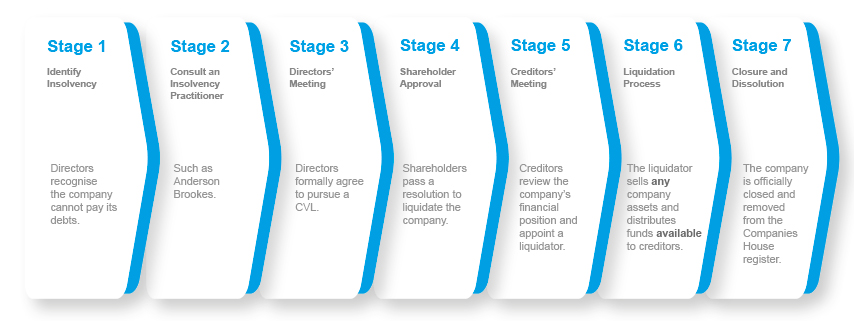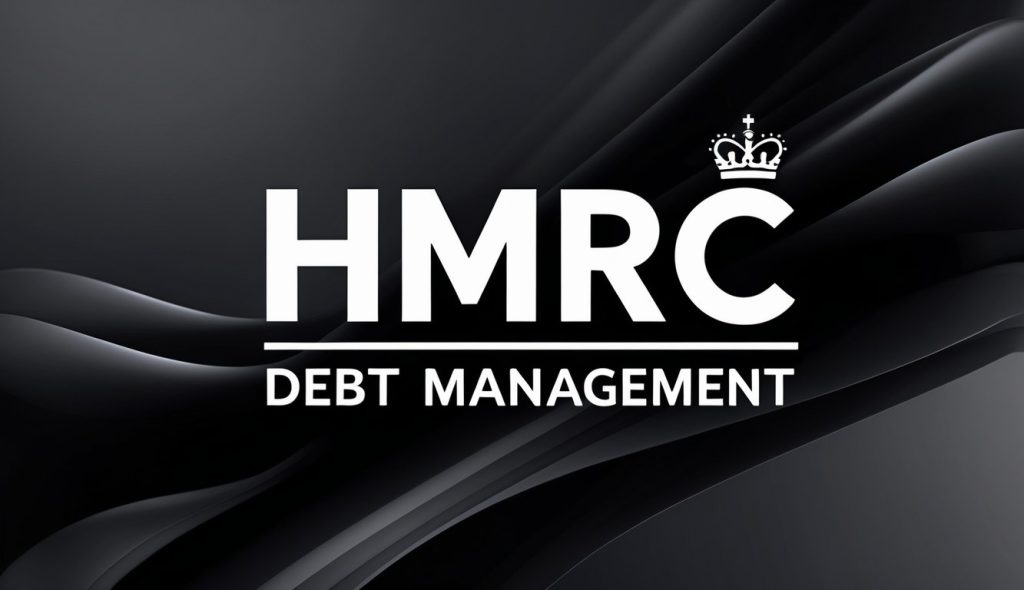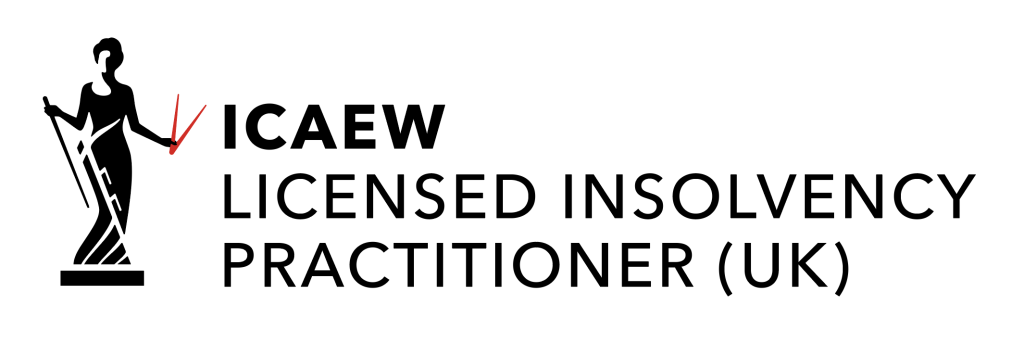Company Closure: HMRC Debts
Anderson Brookes Insolvency Practitioners help directors close limited companies with debt quickly, legally and with expert guidance every step of the way.
Contact us today
Can I Close My Company with HMRC Debts?
Yes, you can close a company with outstanding HMRC tax debts, but it must be done properly. When your business owes Corporation Tax, VAT, PAYE, or Self-Assessment, and can’t pay, it’s considered insolvent. In this case, a voluntary strike-off isn’t permitted – HMRC will object. The correct route is a Creditors’ Voluntary Liquidation (CVL).
HMRC is a secondary preferential creditor for certain taxes, which means they rank above unsecured creditors during liquidation. Attempting to dissolve the company via DS01 without clearing these debts may be seen as an attempt to avoid payment, risking enforcement or personal liability.
Our licensed insolvency practitioners guide directors through this process, including:
| Type of Tax Debt | HMRC Action | Our Support |
|---|---|---|
| VAT / PAYE / CT | Objection to strike-off, enforcement letters, winding-up petition | Advice on CVL or negotiation options |
| Corporation Tax | Late payment interest, penalty notices | Reviewing viability, Time to Pay support |
| Self-Assessment | Personal risk review (if sole director/employee) | Clarifying boundaries and next steps |
If a Time to Pay arrangement isn’t realistic or has failed, a CVL allows for formal closure and can eliminate remaining tax liabilities not covered by company assets. It also helps reduce director risk by showing responsible action.
You cannot close a company with HMRC debts informally. If pressure is mounting, seek advice early. We can help you assess whether the business is viable or if liquidation is the best route.
Support from a Licensed Insolvency Practitioner
Only a licensed insolvency practitioner can lead a liquidation. At Anderson Brookes, our in-house team works directly with company directors to explain every step and manage the entire process. No pushy sales, no third-party handovers. Just honest advice and regulated support.
Can you liquidate your limited company?
Why Directors Choose Anderson Brookes
With more than 25 years’ experience and thousands of directors helped, we’re trusted by business owners across the UK. You can speak directly with an expert insolvency practitioner and we’ll help you understand your options clearly and quickly. We specialise in working with small and medium businesses and we understand your perspective and priorities.
Ready to
Move On?
If you’re ready to close your company, stop creditor pressure, or just want to understand your next steps, we’re here to talk.
Call us now on 0800 1804 935 or request a call back - we’re here to help.













How to Close a Company with HMRC, VAT or Any Debt – Director Support & Guidance
If your company is struggling with debt and you’re considering closing it, you’re not alone. Thousands of directors each year face the same dilemma. At Anderson Brookes, we understand how difficult this decision can be and we’re here to offer honest, regulated advice that protects your interests and keeps you compliant with the law.
What Are the Options?
When a company can no longer pay its bills as they fall due, or its liabilities outweigh its assets, it is considered insolvent. At this stage, you cannot simply strike the company off the register. Instead, a formal insolvency procedure is required.
Creditors’ Voluntary Liquidation (CVL)
This is the most common route for directors looking to close a company with debt. It’s a formal process led by a licensed insolvency practitioner, where the business is wound up and any assets are used to repay creditors. Directors remain in control until the liquidator is appointed and, when handled properly, this route offers legal protection from further creditor action.
CVL Process - 7 Steps
Compulsory Liquidation
This is where a creditor forces the company into liquidation through the courts. It is often more stressful and can carry more reputational and legal risk. We help directors take control of the situation before it gets to this point.

Director Responsibilities During Closure
If your company is insolvent, your legal duty shifts from protecting shareholders to protecting creditors. You must:
Stop trading immediately to prevent additional losses
Not move or hide company assets
Avoid paying one creditor in preference over others
Keep all financial records safe and accurate
Seek advice from a licensed insolvency practitioner as soon as possible
Failing to meet these duties can result in serious consequences including disqualification or personal liability for company debts.
What If the Company Has No Assets?
You can still close an insolvent company through CVL even if there are no assets to sell. In many cases, directors can personally fund the low-cost process or may be eligible to claim director redundancy to help cover the costs. We’ll talk you through all your options.
Take the First Step
If you’re worried about your company’s debts, the best thing you can do is speak to someone. We offer free, confidential advice to help you understand your options and move forward.
-
Email: advice@andersonbrookes.co.uk
-
Call Free: 0800 1804 935
Take action early and get the right advice from licensed experts who understand exactly what you’re going through.


